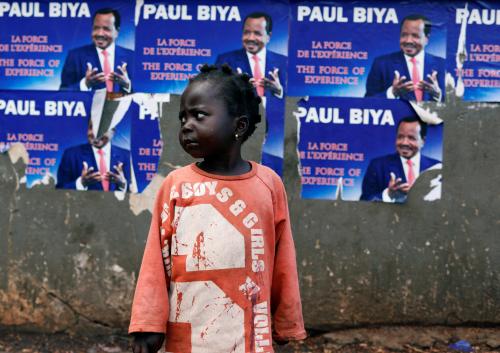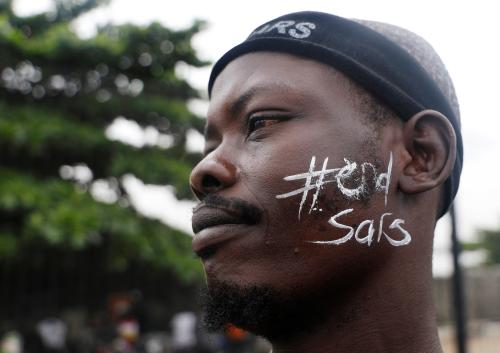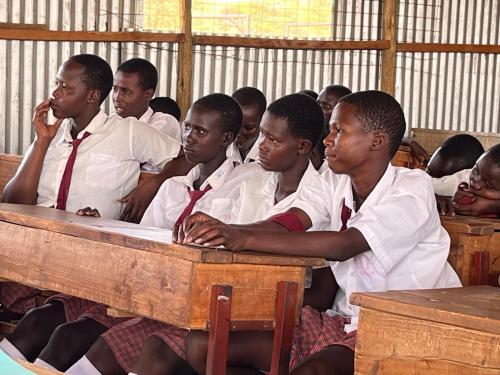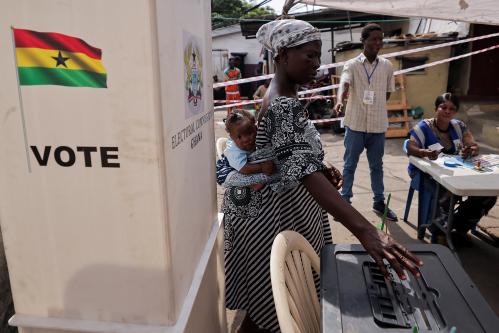Tanzania, Guinea, and the Seychelles election updates
Preliminary results on the morning of Friday, October 30 (as of this writing), suggest that Tanzanian President John Magufuli has all but secured a second term as president of Tanzania in a controversial election. Friday also saw Magafuli’s ruling party (Cha Chama Mapinduzi) win 194 parliamentary seats compared to just two for the opposition parties. If the results hold, Cha Chama Mapinduzi will have a two-thirds majority in parliament, which is also the majority needed to change the constitution.
Already, leading opposition candidate for president, Tundu Lissu, rejected the election over reports of “widespread voting irregularities” and “stuffed ballot boxes.” Indeed, on election day, internet users reported that sites like WhatsApp, Twitter, Instagram, and even Google were blocked. Regional and international voices have backed Lissu’s claim: In fact, on Thursday, the United States embassy in Tanzania released a statement saying, “Irregularities and the overwhelming margins of victory raise serious doubts about the credibility of the results.” Regional whistleblower Tanzania Elections Watch decried the results, stating that this election “marked the most significant backsliding in Tanzania’s democratic credentials.”
In another heavily contested election, Guinea’s electoral commission declared incumbent President Alpha Conde the winner of the country’s presidential election last week with 59 percent of the vote. The results of the election in the face of the closure of Guinea’s borders and restrictions on internet and phone usage sparked violence that led to the deaths of nearly two dozen people.
Also this week, the Electoral Commission of Seychelles announced that Wavel Ramkalawan won its presidential election, becoming the first elected president from an opposition party since the island nation gained its independence from Britain in 1976. Ramkalawan, an Anglican priest, won 54.9 percent of the vote and will face the immediate challenge of trying to revive an economy decimated by a lack of tourism in the wake of the pandemic.
Zambia secures debt relief from China
On Wednesday, Zambia and the China Development Bank (CDB) announced an agreement on a debt servicing relief plan just weeks before a key bondholder meeting to decide if Zambia is delinquent on its payments. Experts say that the plan, which suspends a late interest payment by six months and reschedules principal payments due this month across the lifetime of the loan, may make it more likely for the holders of Zambia’s eurobonds to accept the nation’s debt suspension proposal. Bondholders have been pining for improved transparency regarding Zambia’s debt portfolio, especially its debt held by China. If bondholders cannot reach an agreement with Zambia about reshuffling its obligations, it will likely become the first country to default in the pandemic era.
Zambia, which had already obtained some relief via the G-20’s debt service suspension initiative (DSSI), may find it difficult to secure additional DSSI relief for its obligations owed to the CDB. China has insisted that the CDB is a commercial lender, not an official creditor, despite the fact that it is a state-owned bank. China has issued 63 percent of all bilateral debt owed to the G-20 by the world’s poorest countries and is the single-largest contributor to the DSSI. For more on debt relief efforts for the region under the pandemic, see “The unfinished agenda of financing Africa’s COVID-19 response.”
Zimbabwe’s Cabinet approves controversial amendments outlawing ‘unsubstantiated’ accusations of human rights abuses and unauthorized communications with foreign governments
Earlier this week, officials in Zimbabwe’s Cabinet approved controversial legislation criminalizing the reporting of “unsubstantiated claims” of human rights abuses, outlawing activist interaction with foreign governments without state approval, and prohibiting “planned and timed protests deliberately designed to coincide with major international, continental or regional events or visits.” According to Bloomberg, Information Minister Monica Mutsvangwa said that the changes outlaw “any cooperation with overseas government for self-gain or to inflict damage on Zimbabwe’s people and national interests.” Similarly, she said that the government will retain the right to prosecute individuals or groups that engage in foreign relations without verifying facts or engaging domestic authorities. The country’s parliament will soon vote on the Criminal Law Codification and Reform Act, which includes these provisions and is widely expected to pass.
The announcement of the amendments was swiftly met with heavy criticism from nongovernmental organizations and the political opposition alike. Opponents of the amendments claim that the goal is to silence opposition party members that have accused the government of abduction and physical harm.
Recently, President Emmerson Mnangagwa also announced his intention to amend the laws overseeing nongovernmental organizations (NGOs) and has, in the past, accused NGOs of conspiring with the opposition and foreign governments to overthrow his administration.
The Brookings Institution is committed to quality, independence, and impact.
We are supported by a diverse array of funders. In line with our values and policies, each Brookings publication represents the sole views of its author(s).








Commentary
Africa in the news: Tanzania, Guinea, Seychelles, Zambia, and Zimbabwe updates
October 31, 2020